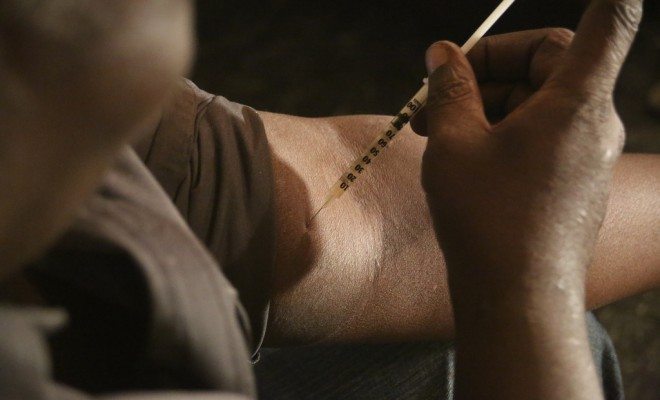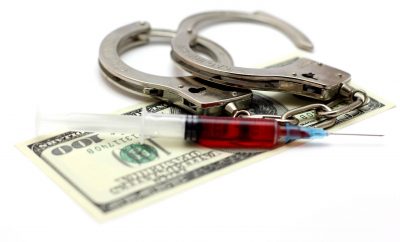 Image Courtesy of [WBEZ via Flickr]
Image Courtesy of [WBEZ via Flickr]
Crime
Pennsylvania Coroner Labels Heroin Overdoses ‘Homicide’
What if heroin overdoses were not classified as accidents, but as homicides?
That is what one Pennsylvania coroner is starting to do.
According to Penn Live, in Lycoming County, Pennsylvania, coroner Charles E. Kiessling wants to call the issue like it is. Rather than have the death be classified as either a suicide or accidental, labeling heroin overdose deaths as homicides holds the drug dealers accountable for their actions.
“If you are selling heroin to someone and they die, isn’t that homicide?” he said to Penn Live. He added that ruling the deaths as accidental downplays the true severity of the situation.
This issue has garnered both positive and negative comments. Some argue that this will become a slippery slope where car dealers are blamed for car accidents. However, as explained in Penn Live, a coroner’s report is not legal finding, therefore a death being classified a homicide on the report does not mean in the eyes of law enforcement it will immediately be taken that way.
This same argument has been presented in previous years regarding fast food chains and obesity. In one 2002 case against McDonald’s, two teenagers blamed the fast food chain for their obesity, arguing that they were not provided with the necessary nutritional information. Lawyers for McDonald’s made the case that it was really a case of a lack of individual responsibility.
A Centers for Disease Control and Prevention handbook states that a death should be designated a homicide if it is from “… a volitional act committed by another person to cause fear, harm, or death. Intent to cause death is a common element but is not required for classification as homicide.”
The second part of their definition is crucial because in these cases of heroin overdoses, there may not be explicit intent to kill.
The coroner’s decision comes as heroin related deaths are increasing across the state, along with a personal connection after he said he pronounced a friend’s son dead from heroin, according to Penn Live.
“This hit me very personally,” Kiessling said to Penn Live. “I don’t care if I offend people. Drug dealers are murderers and belong in state prison.”
A hole in the slippery slope argument, though, comes when opponents argue that then a doctor would need to be charged with homicide if one of their patients overdosed on prescription medicine. However, unlike drug dealers, doctors have licenses and their medicines are administered in methodical and specific amounts, making it more difficult for patients to overdose accidentally. When it comes to drugs, the buyer may not even know what chemicals are in the drugs and this unknown lends itself to issues.
With that being said, is it really plausible to call all drug dealers “murderers?” The same language can be used as was used by McDonald’s lawyers: it is the individual’s choice to consume certain foods or drugs, meaning that drug dealers shouldn’t be held liable for what happens to their consumers.
With any overdose, the situation is very sensitive, and the classification of the death could mean different implications for not only police but also for the families of the victims.








Comments